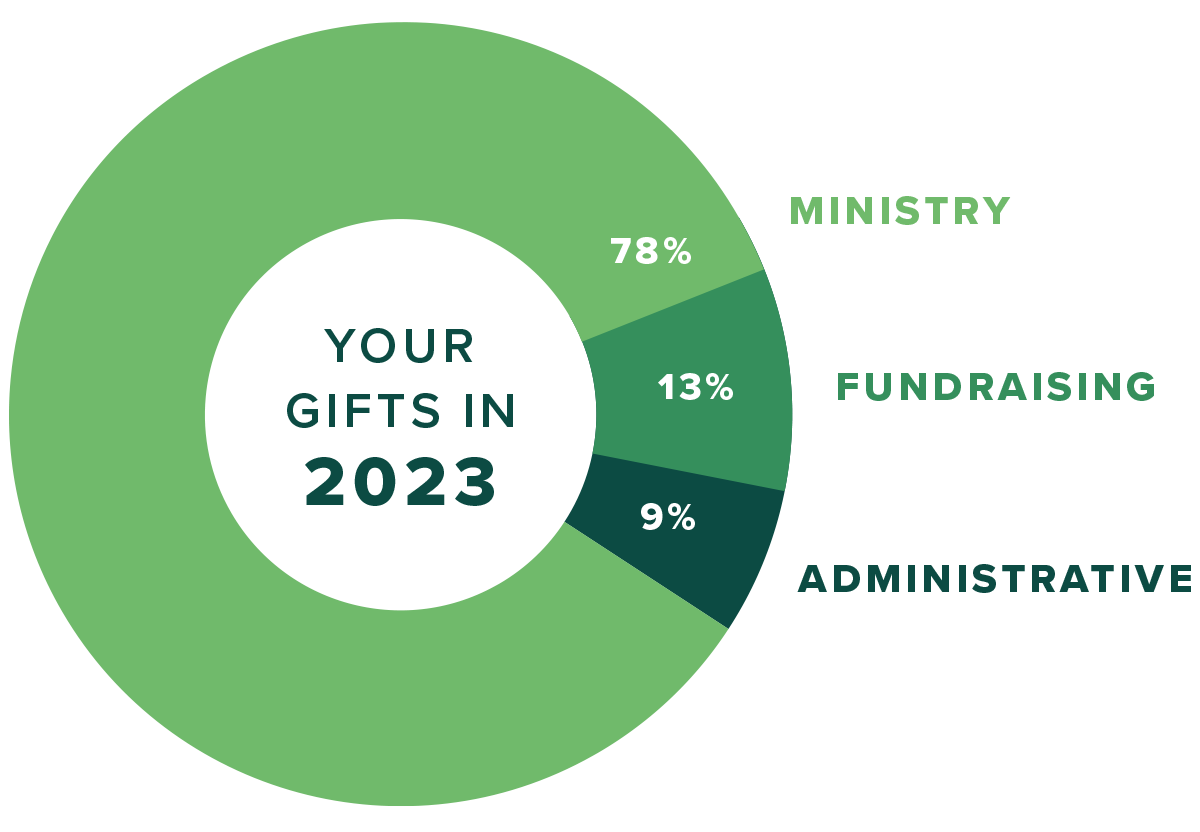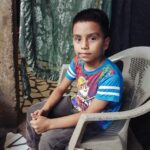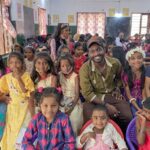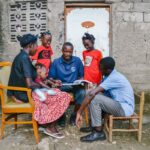A year in review with OneChild’s Country Director in Zimbabwe about how Child Champions are bringing hope to kids in the face of economic crisis.
Zimbabwe has faced what seems like a perfect storm of hardships: droughts, mind-boggling 300% inflation rates, and the added economic fallout from the global pandemic that’s left nearly half the population of Zimbabwe in poverty.
A hard place for sure.
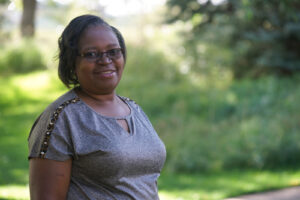
Chipo Changara, OneChild Zimbabwe Country Director
But just when we’re starting to feel discouraged, we always remember Zimbabwe’s biggest asset: its people. They care deeply for their children and have a culture that often puts the interests of the community ahead of themselves. Zimbabweans treasure education.
So, when we talk about hope in hard places, what does that actually look like in a place like Zimbabwe?
Recently, we connected with Chipo Changara, OneChild’s Country Director in Zimbabwe to ask about these issues. She pulled back the curtain, giving us a view into the realities at our Hope Centers in Zimbabwe and how those who sponsor a child empower local Child Champions. Along with her husband, Pastor Dixon Changara, Chipo has served the children in our Zimbabwe Hope Centers for 10 years. As she looks back at 2022 and shares the vision she has for her community, she gives us solid reasons for hope in Zimbabwe.
Reducing Poverty in Zimbabwe Through Nutrition, Education and Health
Q: In a year full of unique challenges, what were the most difficult aspects in 2022 for the Hope Centers, children, and families in Zimbabwe?
A: Many parents became unemployed, so children depended on food they received from the Hope Centers more than ever. Receiving adequate nutrition, healthcare, and shelter outside of our program was a growing challenge. Because these challenges were community-wide, our Child Champions became overwhelmed by requests from parents and guardians to enroll their children at the Hope Centers. Families know it is the only way for their kids to have access to basic necessities and other opportunities.
“Child Champions became overwhelmed by requests from parents and guardians to enroll their children at the Hope Centers.”
Q: How were Child Champions able to address these challenges and support families during the hardest times?
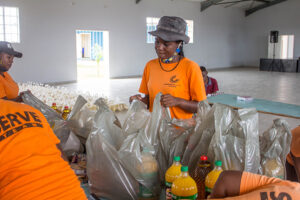
Child Champions pack food hampers to help struggling families provide nutritious meals for their kids
A: Child Champions went beyond words and helped struggling families by displaying love in action. In addition to providing children with a plate of porridge five days a week, we supplied struggling families with food hampers consisting of basic food commodities like meal mealie (a coarse flour), cooking oil, sugar, beans etc.
We also paid for a portion of the children’s school fees and provided school uniforms, and we made sure children received necessary medical care and hygiene packs that included soap and other items. Read more about the difference this relief made to two children at the height of the pandemic.
Above all, we supported families with the word of God, sharing scriptures and praying with them. We believe that with God we can face whatever comes our way.
What Thriving Means
Q: What items or services were most needed in your area to help children thrive?
A: For a child to thrive, it means that they are able to meet their potential to be happy, healthy, curious, and strong despite any circumstances they face.
To help them excel, they needed assistance with school to get good grades as well as guidance to improve self-esteem, be optimistic, and have empathy, confidence, integrity, and perseverance. Basic items our children needed were nutritious food and water, shelter, clothing, medical care, protection, and love from trusting adults.
Watch Zine’s video to see how she found hope.
Families Take Ownership
“Parents not only learned more about the program, but many volunteered their time.”
Q: Last year, our Hope Centers implemented new strategies to help families engage more in programming. Did you notice a change in the amount of family involvement?
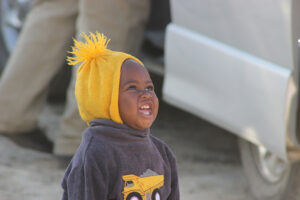
A toddler in Zimbabwe bubbles over with laughter
A: We noticed great, positive changes in the amount of family involvement with the program. Parents not only learned more about the program (like how it works with us paying a portion of school fees), but many volunteered their time. They cut firewood for the kitchens at the Hope Centers, cooked meals, and spent time mentoring children during different activities. Because of this, there is a greater sense of ownership among the families.
Q: What do you hope to see happen in the OneChild program in Zimbabwe this year?
A: I ultimately want to see children thrive in hard places. I see this happening through growing the nutrition program, increasing the amount of school fees we can supply, building our discipleship programs, providing vocational training and/or university assistance to youth who have excelled, and continuing to increase engagement among primary caregivers. I would love to have 10,000 sponsored children in our Hope Centers within three years!
Hope for the Future of Zimbabwe
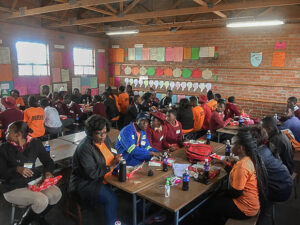
Kids gather at a Hope Center for a meal during a volunteer challenge.
Pastor Chipo’s answers give us a sense of hope that outweighs the heaviness we sometimes feel when looking only at Zimbabwe’s circumstances.
Of course, we always rejoice to see basic needs like food and medical care being met. But with families more involved than ever and showing a sense of ownership in the program, it feels like we’re witnessing a community looking to God as they build their better future together. After all, the Child Champions serving the kids are community members themselves.
We’re grateful to Pastor Chipo for giving us not only a look at the year ahead, but a sense of excitement about the future of an entire generation.
We are accountable to the children we serve AND to our donors.
Our accountability to our donors is one of our highest priorities. Our goal is to use the funds entrusted to us as wise stewards. To do this requires continued monitoring of our fund distribution. OneChild is also a member in good standing with the Evangelical Council for Financial Accountability (ECFA)
